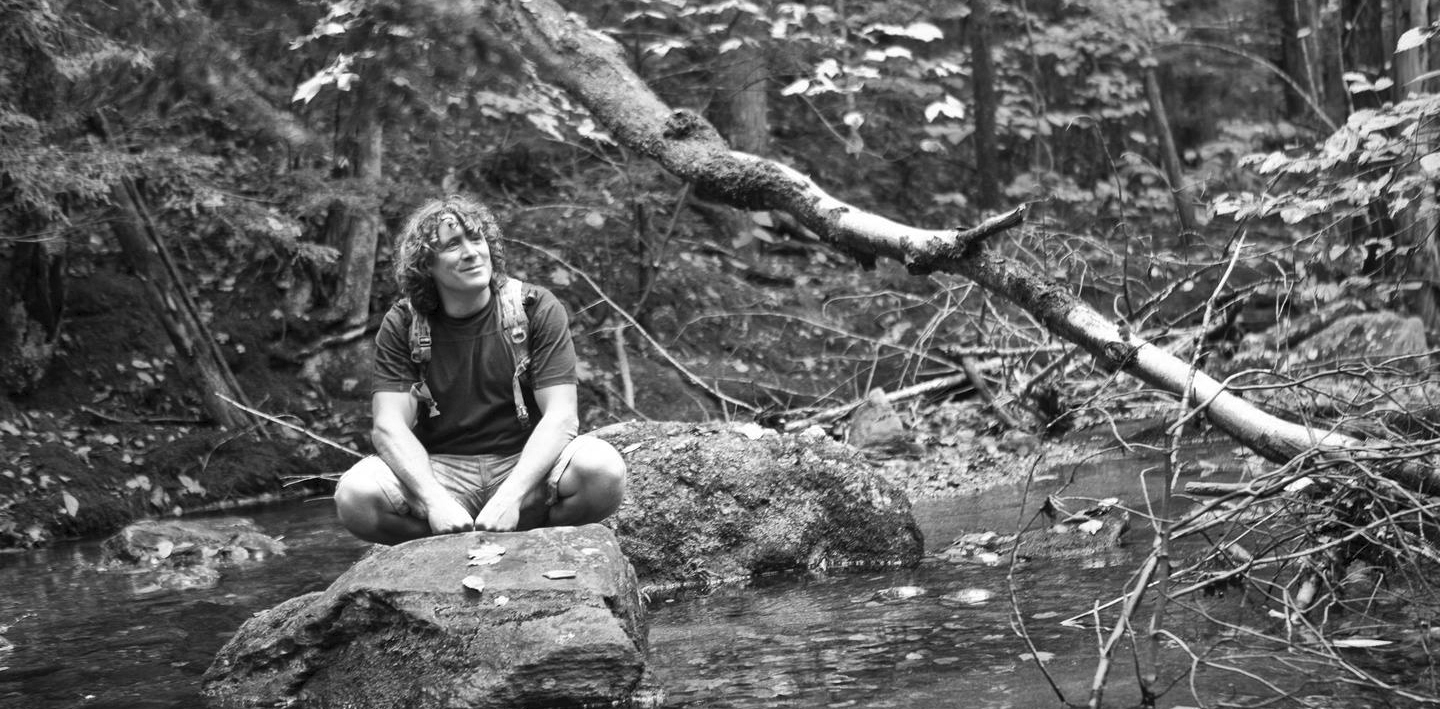
We all talk a good game about how to eat, what to eat, and the importance of preparing our own food from quality ingredients. The truth is that everyone faces the same dilemmas from time to time. Whether it's travel, working late, business lunches, social outings, or simply not being interested in cooking, there are many reasons that eating that home cooked meal may not always be possible.
I've decided to pose a series of questions to our members on a weekly basis on what gets them through these situations. You might be surprised at some of the answers and others might be exactly what you expected — either way, I'm hopeful that this will help you navigate your way through the myriad of awkward, inconvenient, or simply lazy situations you find yourself in.
Arthur Haines from Canton, Maine
CA: Do you put much thought into where you eat out? Or do you simply go anywhere and try to make do with what's on the menu?
AH: In general, I place a great deal of thought about where I eat out. I'm looking to support those owners and chefs who care enough about the health of their patrons and the planet to secure local, conscientiously raised or sustainably wild-caught foods. It matters a great deal to me that the foods on the plate did not require animals to sit inside cages or be fed a diet that is not biologically appropriate to them. Of course, the connection needs to be made that chemical-laden plants and sick animals create sick humans.
CA: Most memorable restaurant meal in (or near) Canton?
AH: The town I reside in, Canton, is a small town with nowhere to eat prepared food. Therefore, it is our home and sometimes in our forest where we eat when at home.
CA: Most memorable restaurant meal outside of Canton?
AH: I think there are many good restaurants that could be mentioned. Fore Street (in Portland) is a wonderful establishment that changes its menu daily. It has a wide variety of offerings that aren't typical of many locations to eat anymore (such as raw bar, offal, etc.). Fuel Restaurant (in Lewiston) is one of the few places that attempts to find local produce and conscientiously raised animals to include on the menu. Nezinscot Farm Café (in Turner) is an organic and pasture-raised farm that offers food to table meals. It is the nearest establishment to me that offers conscientiously raised foods. For me, eating out isn't something I do often, and I would prefer to spend more money infrequently than less money on a regular basis and eat lower quality food (which is a euphemism for eating life that was treated poorly while it was living).

Fore Street Restaurant Portland
Find More Member Recommended Restaurants Near You
CA: For people with special diets, how do you suggest they talk with restaurant staff in order to get what they need?
It is best to build a relationship with a restaurant, so that the staff and cooks are well known to the person eating there. For someone with such a relationship, the cooks are often willing to make substitutions, changes, and exclusions to be sure that the patron gets what they need in their dining experience. This is no different than building a relationship with the farms and farmers who might supply foods for a person's table.
CA: Do you prepare an emergency meal when you travel? If so, what do you include?
AH: I frequently travel with my partner who helps put together a number of foods that we can consume if quality establishments can't be located. A small cooler helps to keep some foods chilled during the summer months. Items like raw cheese, smoked fish, dried fruit, nut butter, and kombucha are frequent items we bring on our travels.
CA: Your favorite quick meal to prepare at home?
AH: One of the foods we preserve in abundance is venison (i.e., deer meat). We can small chunks of the meat in glass jars and this will keep for a long time without refrigeration. The canned venison is cooked, so it requires only to be warmed up to include a variety of dishes (e.g., soups, sauces, stir fry, mixed with hand-collected wild rice).
CA: Do you consume alcohol? Explain why you think it is or isn’t a good idea.
AH: Yes, occasionally. Most of the alcohol I consume is in the form of mead. This is kind of wine fermented on honey and (in our case) wild-collected fruit. We use it as a way to continue ingesting beneficial phytochemicals through the winter season. Our meads are made with species like fox grape (Vitis labrusca). The flesh, skins, and seeds are fermented for two months using our recipe, meaning the mead is rich in polyphenols that supply antioxidant, antimicrobial, vessel strengthening, protection from UV, anti-inflammatory, and antineoplastic actions (among many others) are present in the mead. We also make mead from wild-collected blueberries, blackberries, black cherry, choke cherry, and several evergreens.
CA: In terms of food, what is your guilty pleasure?
AH: There are many sweet foods that I enjoy consuming — the trick for me is to make sure they are a very small proportion of my overall diet. We occasionally make cookies, brownies, and wild berry pies from acorn flour (for the pies, the acorn flour makes the crust). These are wonderful because we can limit the amount of sweeteners we use. In our home, our deserts are sweetened 100% with maple sugar or maple syrup, which we produce ourselves from sugar maple trees found on and near our property. This is a great sweetener that supplies those eating it with vitamins, minerals, and antioxidants.
 My name is Arthur Haines and I’ve been helping people explore human ecology for over 20 years. I’ve done this with the mission of developing deep awareness of and connection to nature, promoting individual health, and fostering self-reliance. Wild food is a passion of mine, and through this, I offer a glimpse of our past and a new picture of our future. Numerous independent studies attest to the health benefits of wild plants that were consumed by indigenous people around the world. These foods are documented as both the most nutrient-dense plants available and having the greatest concentrations of beneficial phytochemicals, which offer protection against premature aging and insults to health. Wild plants offer a magnificent gateway to real food and wild living. Through this knowledge, and many other facets of our shared ancestral lifeways, we can awaken a rewilding of our body, mind, and heart.
My name is Arthur Haines and I’ve been helping people explore human ecology for over 20 years. I’ve done this with the mission of developing deep awareness of and connection to nature, promoting individual health, and fostering self-reliance. Wild food is a passion of mine, and through this, I offer a glimpse of our past and a new picture of our future. Numerous independent studies attest to the health benefits of wild plants that were consumed by indigenous people around the world. These foods are documented as both the most nutrient-dense plants available and having the greatest concentrations of beneficial phytochemicals, which offer protection against premature aging and insults to health. Wild plants offer a magnificent gateway to real food and wild living. Through this knowledge, and many other facets of our shared ancestral lifeways, we can awaken a rewilding of our body, mind, and heart.
Learn More About Arthur Haines and the Neo-Aboriginal Lifeway
Read More Q&A's from the "What & Where They Eat" Series


